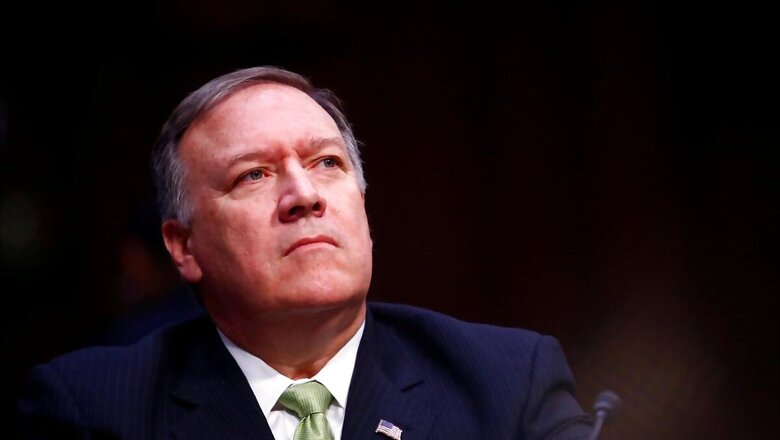
views
US Secretary of State Mike Pompeo on Thursday said Washington's diplomatic efforts to isolate China and threats from it are working, with more countries joining in to criticise Beijing.
Pompeo insisted the "tide is turning" in dealings with China, citing international support for Washington's policies even as he expressed "dismay" at the number of countries supporting Beijing's new security law for Hong Kong.
"India has banned 106 Chinese applications that threatened its citizens’ privacy and security," said Pompeo at the Senate Foreign Relations Committee on the Fiscal Year 2021 State Department Budget request.
Pompeo was testifying at a Senate Foreign Relations Committee hearing for the first time in 15 months, discussing the State Department's annual budget request.
"Our diplomatic efforts are working and momentum is building to mitigate the threats that Chinese Communist Party presents. All 10 ASEAN nations have insisted that the South China Sea disputes must be settled on basis of international law, including UNCLOS," he said.
Pompeo said Japan led the G7’s condemnation of China’s national security law targeting Hong Kong.
"The EU condemned the law too, and also declared China a 'systemic rival' just last year. Our Quad – the United States, Australia, India, and Japan has been reinvigorated," he added.
Pompeo said at the EU's request, Washington has agreed to start a dialogue channel focused solely on China and the Department of Justice is also cracking down on Chinese IP threats.
"We have sanctioned Chinese leaders for their brutality in Xinjiang, imposed export controls on companies that support it, and warned US businesses against using slave labor in their supply chains," he said. "We’ve terminated special treatment agreements with Hong Kong in response to the CCP’s actions to deny freedom to the people of Hong Kong. And we closed our consulate in Houston because it was a den of spies."
Pompeo added that the administration has requested for nearly one and a half billion dollars for foreign assistance to the Indo-Pacific region, a 20% increase from the 2020 request. "We want that part of the world to be free and open and prosperous," he said.




















Comments
0 comment